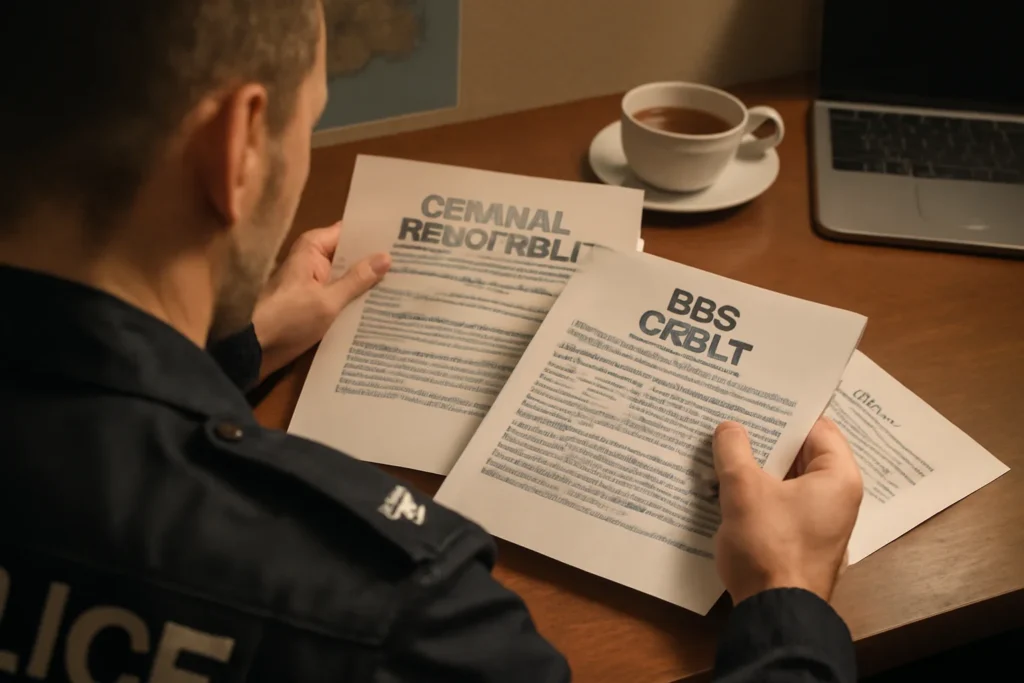Every year, around 15,000 UK-trained teachers work abroad. At the same time, thousands of overseas teachers move to the UK for better career prospects.
Since the flow goes both ways, teaching in the UK isn’t overwhelming anymore. Especially when they actively recruit international teachers to fill gaps in secondary schools and primary education.
Drawing from our experience at OTJR Online with international recruitment, we’ve seen what works when it comes to visas, sponsorship, and landing teaching jobs. That’s why we are sharing this guide to tell you about:
- Skilled worker visa requirements
- Salary expectations across UK regions
- Working without QTS for four years
- Finding schools that sponsor overseas teachers
- Documents needed before applying
Read on to learn the exact steps for securing your teaching role.
What Do Overseas Teachers Need to Work in the UK?

Overseas teachers need to work on three things: a skilled worker visa, a teaching qualification recognised by their home country, and a job offer from a school with a sponsor licence.
Here are the things explained briefly for your better understanding.
Skilled Worker Visa Requirements
If you want to teach abroad, you need a skilled worker visa. You can’t just plan and start working in UK schools without the proper immigration status.
Schools must have a sponsor licence to support your visa application. To be specific, not every school can sponsor you, so you’ll need to check before applying. The Home Office maintains a public register where you can verify which schools are licensed sponsors.
Sometimes, visa processing takes up to 15 working days from your biometric appointment. But you can pay extra for priority processing if you need the job sooner.
Qualified Teacher Status (QTS) Explained
QTS proves you meet England’s teaching standards for maintained state schools. It’s the gold standard qualification that schools look for when hiring.
Many highly respected international schools prefer qualified teachers with QTS, too. Even though it’s legally not required to hire QTS holders, most still favour candidates who have it. However, non-UK teachers can work for four years before needing QTS.
You’ll learn more about this in a later section.
Schools that Sponsor Non-UK Teachers
Finding schools that are willing to sponsor your visa is easier than most overseas teachers expect, especially if you know where to look.
You can search on the Teaching Vacancies website, which filters teaching jobs that offer visa sponsorship at no cost. Usually, multi-academy trusts often sponsor more readily than individual maintained schools. However, independent schools establish their own salary scales, offering more flexibility.
According to the UK sponsorship and compliance update from 2025, schools pay £574 to £1,579 for their initial sponsorship licence, where a certificate of sponsorship costs £525 per qualified teacher.
Teaching Abroad in the UK: Salary Expectations

The best part about UK teaching salaries is the transparency. They pay according to the national pay scale, which means you know exactly what you’ll earn before accepting any offer.
However, your salary varies according to different conditions, including:
Starting Salaries for Overseas Teachers
Qualified teachers begin with £32,000 outside London in maintained schools. That’s your baseline if you’re teaching in cities like Manchester, Birmingham, or Leeds.
However, international teachers without QTS earn slightly less during the exemption period. They’ll typically start around £20,000 to £25,000, depending on the region. This difference narrows when you have an assessment-only QTS.
Besides, experience from your home country sometimes increases your starting pay band. Schools have the freedom to recognise your previous teaching experience, though it’s not guaranteed (Worth negotiating during your job offer.)
London vs Outside London Pay
Inner London teachers earn a minimum salary of £36,000 as a starting, annually. The capital pays more because the cost of living demands it.
Meanwhile, outer London sits between inner London and national rates for teachers. You’ll typically see starting salaries around £33,000 in boroughs like Croydon or Barking. Frankly, your actual salary depends on the school type and negotiations with employers.
UK Teaching vs Middle East Opportunities
Whenever you’re planning for a UK teaching career, there is a big comparison with the Middle East. How? Well, Middle East teaching jobs often include free housing and tax-free salaries.
For example, the typical teaching opportunities in Dubai or Abu Dhabi can get you £22,000 to £44,000 with accommodation covered (you can even save after your monthly expenses).
Contrarily, UK roles offer permanent residency pathways and stronger employment protections. And after five years on a skilled worker visa, you can apply for indefinite leave to remain. However, it’s worth noting that Middle East contracts rarely lead to citizenship.
Teaching in the UK Without QTS
Now, what happens if you don’t have QTS yet but want to start teaching in England right away? The following sections can answer this question.
The Four-Year Rule
As we’ve mentioned before, overseas-trained teachers can work without QTS for their first four years. This exemption gives you breathing room to settle into your teaching role.
But here’s the other condition: you’ll need a letter confirming your professional standing as a teacher. If you are from countries like Australia, Canada, and the USA, then you have straightforward systems for this. Others require more paperwork.
Quick Tip: Always plan upfront, don’t leave it till year three!
Assessment Only Route
Assessment-only QTS suits experienced teachers with two or more years of UK experience. You’ll have to demonstrate that your teaching skills meet English standards through classroom observation.
These costs range from £1,500 to £4,000, depending on your training provider (shop around, prices vary wildly between providers). You can work normally whilst being assessed by your training provider. There’s no need to take time off or reduce your teaching hours.
What Documents Do International Teachers Need?
Now that you know the visa and salary requirements, let’s cover the paperwork you’ll need to gather.
Safeguarding Checks
In the UK, all overseas teachers undergo enhanced DBS checks with the children’s barred list information. The Teaching Regulation Agency maintains this list of educators who are barred from teaching. It’s a legal requirement for schools to verify your name isn’t on it before you start any teaching role.
But these safeguarding checks happen only after you receive your conditional job offer. You can’t get a DBS certificate until a school sponsors you.
Getting Criminal Records from Your Home Country
You’ll need official criminal record checks from every country you’ve lived in. If you taught in Australia for three years, you’ll need an Australian police check alongside checks from your home country.
Some countries provide these through their embassies in the UK. For example, Canadian teachers can request RCMP checks through the High Commission in London, while American teachers use FBI background checks.
When you receive the criminal record, it must be certified if your documents aren’t in English. (Because schools won’t accept Google Translate versions.)
UK ENIC Statement of Comparability
UK ENIC confirms your teaching degree meets UK undergraduate degree standards. This organisation evaluates whether your qualifications are equivalent to a UK bachelor’s degree.
This statement costs around £200 and takes about 15 working days. That’s why you apply early, since many schools want this before they make formal job offers to candidates.

Where Are the Best Teaching Jobs in the UK?
According to our investigation, London advertises over 60% of all teaching vacancies in England, but regional schools often offer a better work-life balance.
Usually, London has the most teaching vacancies for overseas-trained teachers. The capital’s schools constantly recruit them to fill gaps in secondary schools and primary education.
For instance, Inner boroughs like Tower Hamlets are well-known for such recruitment. It also runs dedicated overseas recruitment campaigns, offering relocation support for newly arrived teachers. Newham and Hackney follow similar approaches.
Before securing permanent teaching jobs, many overseas teachers start as supply teachers, and London pays them £150 to £250 per day.
And for subjects, maths and science teachers find teaching jobs easily across all UK regions. These subjects remain in high demand always.
Remember, Northern Ireland, Scotland, and Wales have separate registration and visa rules since each country regulates teachers differently.
Getting Started with Teaching Abroad UK Applications
Teaching abroad in the UK becomes manageable when you understand skilled worker visa requirements, salary expectations, and qualified teacher status pathways.
Now, if you’ve gathered your documents and identified target schools, here’s how to start applying: register with teaching vacancies and filter for visa sponsorship job postings. And get your UK ENIC statement early, before applying seriously.
Looking for schools that actively recruit overseas teachers? OTJR Online specialises in placing international teachers in London schools offering visa sponsorship. Visit our site to explore current teaching opportunities for qualified teachers.

